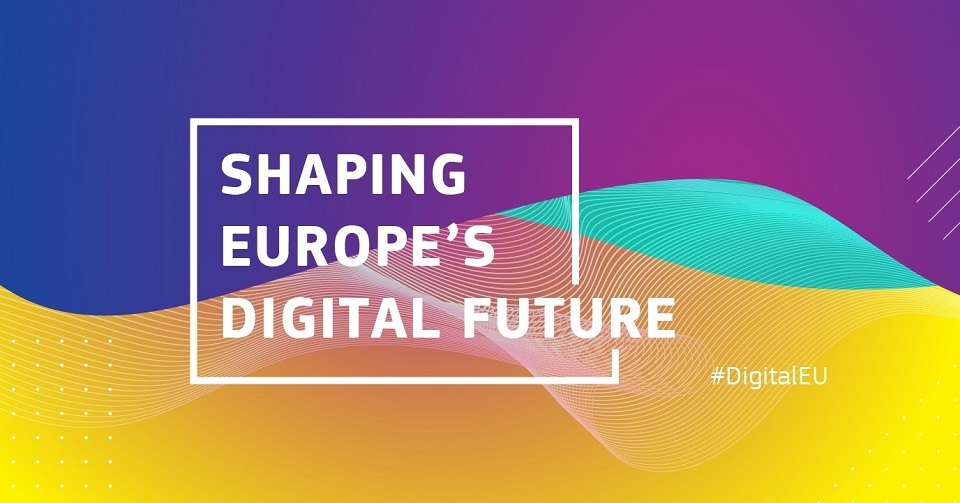European Commission presents its ‘Digital Decade‘ vision on digital transformation of Europe by 2030

The European Commission has entered the ‘Digital Decade’ and presents a vision, targets and avenues for a successful digital transformation of Europe by 2030. This is also critical to achieve the transition towards a climate neutral, circular and resilient economy.
The EU’s ambition is to be digitally sovereign in an open and interconnected world, and to pursue digital policies that empower people and businesses to seize a human centred, sustainable and more prosperous digital future. This includes addressing vulnerabilities and dependencies as well as accelerating investment.

President of the European Commission, Ursula ven der Leyen has called to make the next years Europe’s ‘Digital Decade’; responding to the European Council’s call for a ‘Digital Compass’, building on the Commission’s digital strategy of February 2020.
The Communication proposes to agree on a set of digital principles, to rapidly launch important multi-country projects, and to prepare a legislative proposal setting out a robust governance framework, to monitor progress – the Digital Compass.
EUROPE’S DIGITAL COMPASS
The Commission proposes a Digital Compass to translate the EUʼs digital ambitions for 2030 into concrete terms. They evolve around four cardinal points:
1) Digitally skilled citizens and highly skilled digital professionals; By 2030, at least 80 percent of all adults should have basic digital skills, and there should be 20 million employed ICT specialists in the EU – while more women should take up such jobs;
2) Secure, performant and sustainable digital infrastructures; By 2030, all EU households should have gigabit connectivity and all populated areas should be covered by 5G; the production of cutting-edge and sustainable semiconductors in Europe should be 20 percent of world production; 10,000 climate neutral highly secure edge nodes should be deployed in the EU; and Europe should have its first quantum computer;
3) Digital transformation of businesses; By 2030, three out of four companies should use cloud computing services, big data and Artificial Intelligence; more than 90 percent of SMEs should reach at least basic level of digital intensity; and the number of EU unicorns should double;
4) Digitalisation of public services; By 2030, all key public services should be available online; all citizens will have access to their e-medical records; and 80 percent citizens should use an eID solution.
The Compass sets out a robust joint governance structure with Member States based on a monitoring system with annual reporting in the form of traffic lights. The targets will be enshrined in a Policy Programme to be agreed with the European Parliament and the Council.
MULTI-COUNTRY PROJECTS
To better address gaps in the EU’s critical capacities, the Commission will facilitate the rapid launch of multi-country projects, combining investments from the EU budget, Member States and industry, building on the Recovery and Resilience Facility and other EU funding. In their Recovery and Resilience Plans, Member States are committed to dedicate at least 20 percent to the digital priority. Possible multi-country projects include a pan-European interconnected data processing infrastructure; the design and deployment of the next generation of low power trusted processors; or connected public administrations.
DIGITAL RIGHTS AND PRINCIPLES FOR EUROPEANS
EU rights and values are at the heart of the EU’s human centred way on digital. They should be fully reflected in the online space as they are in the real world. The Commission proposes to develop a framework of digital principles, such as access to high quality connectivity, to sufficient digital skills, to public services, to fair and non-discriminatory online services – and more generally, to ensure that the same rights that apply offline can be fully exercised online. These principles would be discussed in a wide societal debate and could be enshrined in a solemn, inter-institutional declaration between the European Parliament, the Council, and the Commission. It would build on and complement the European Pillar of Social Rights. Finally, the Commission proposes to monitor in an annual Eurobarometer whether Europeans feel that their digital rights are respected.
A DIGITAL EUROPE IN THE WORLD
The digital transformation poses global challenges. The EU will work to promote its positive and human-centred digital agenda within international organisations and through strong international digital partnerships. Combining EU internal investments with the significant funding available under the new external cooperation instruments will allow the EU to work with partners around the world in achieving common global objectives. The Commission has already proposed to set up a new EU-US Trade and Technology Council. The EC highlights the importance of investing in improved connectivity with the EU’s external partners, for example through the creation of a Digital Connectivity Fund.













